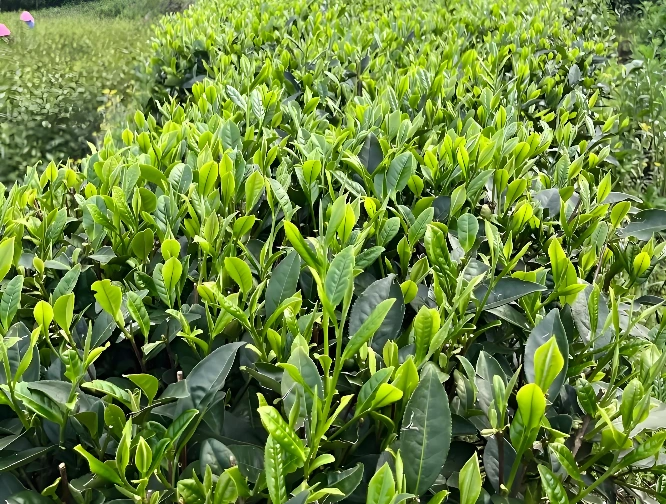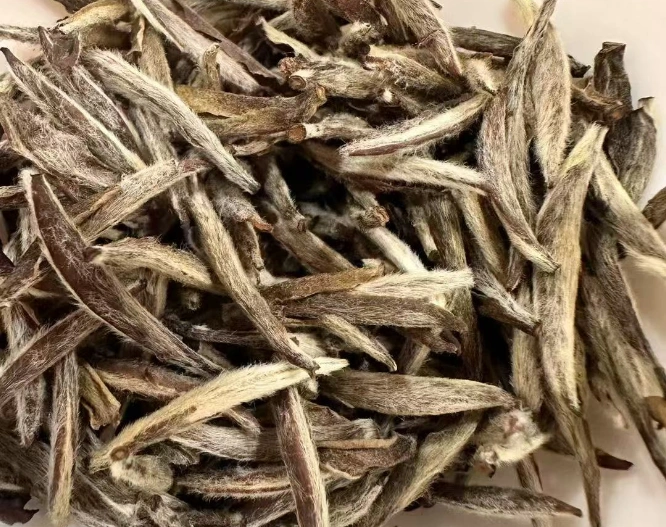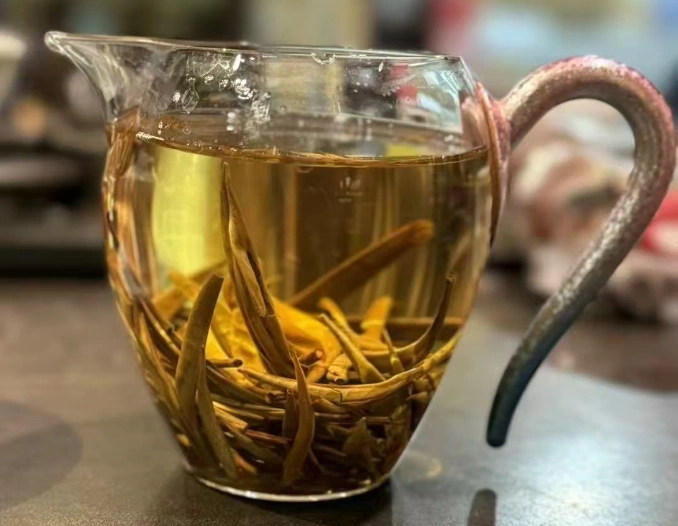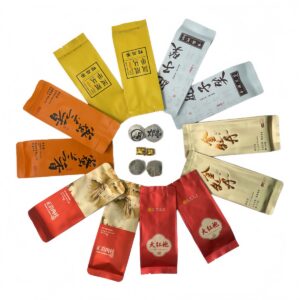Aged white tea whispers of time and terroir, inviting you to savor a cup steeped in history, complexity, and gentle refinement. Imagine unwrapping leaves that have mellowed over years, their silvery down transformed into deep russet-hued beauties, each sip delivering layers of honeyed warmth, earthy depth, and subtle spice. Beyond its captivating taste, aged white tea brings a cascade of wellness benefits—from potent antioxidants to stress-relieving amino acids—that make each moment of indulgence both sensory and restorative.

What Is Aged White Tea?
At its heart, aged white tea begins as freshly plucked buds and tender leaves of Camellia sinensis, minimally processed through withering and low-heat drying. Unlike its younger counterparts, aged white tea embarks on a patient journey of maturation: stored in controlled environments for months or even decades, the leaves undergo slow chemical transformations. Enzymatic browning deepens color; polyphenols polymerize, yielding complex thearubigins; and moisture interactions unlock new aromatic compounds. The result is a tea that transcends fresh vegetal notes, offering instead a tapestry of honey, wood, dried fruit, and toast.
Origins & Processing
While white tea is traditionally linked to Fujian Province—home to Fuding white tea—true aged treasures can emerge from any region that masters careful storage. Fuding’s cool, misty hills provide an ideal birthplace, but once leaves are artfully dried, their destiny lies in aging warehouses. Key factors in creating exceptional aged white tea include:
- Temperature & Humidity: Optimal storage ranges from 20–25 °C with 60–70% relative humidity, fostering gentle biochemical reactions without mold risk.
- Ventilation & Airflow: Periodic air exchange prevents stagnation while allowing tea to “breathe,” smoothing harsh edges.
- Duration: Short-term aging (6–12 months) yields soft floral maturity; multi-year aging (3–10+ years) cultivates profound earthiness and umami richness.
Key Characteristics & Tasting Notes
Appearance & Liquor
- Dry Leaves: From silvery-green to chestnut-brown; some bud hairs darken to coppery bronze.
- Infused Liquor: Golden amber to deep mahogany, clear and lustrous.
Aroma
- Young Aged: Retains gentle orchid and honey notes.
- Mature Aged: Emanates dried fruit, toasted oak, leather, and tobacco whispers.
Flavor & Mouthfeel
- Initial Sip: Warm honey sweetness.
- Midpalate: Silky texture with toasted almond and cocoa nuances.
- Finish: Long, clean lingering of wood spice and mellow mineral glow.
Each infusion unveils new strata of flavor—requiring an attentive palate and a serene moment to explore its depths.

Health Benefits of Aged White Tea
While all white teas boast wellness virtues, aging can amplify certain benefits. Here’s how aged white tea supports your body and mind:
1. Enhanced Antioxidant Profile
Contrary to assumptions that aging diminishes health compounds, research shows that polymerized polyphenols in aged teas retain robust antioxidant capacity. A study in the Journal of Agricultural and Food Chemistry noted that extended storage increased thearubigins—powerful free-radical scavengers—by up to 30% compared to fresh white tea[¹].
2. Improved Digestive Comfort
Aged white tea’s mellow tannin structure is gentler on the stomach, soothing digestive discomfort. The softened astringency and longer infusion times release calming compounds that promote a balanced gut environment.
3. Stress Relief & Mental Clarity
Theanine, an amino acid prized for its relaxation effects, remains intact through aging. When paired with the mild caffeine in aged white tea, L-theanine fosters alert calm—ideal for winding down after a busy day. Clinical trials have shown that theanine intake reduces stress markers and enhances alpha brain-wave activity[²].
4. Heart & Metabolic Support
Regular consumption of white tea, including its aged forms, contributes to healthy lipid profiles and supports glucose metabolism. Polyphenols in aged white tea help inhibit enzymes linked to cholesterol synthesis, offering a gentle boost to cardiovascular well-being.
5. White Tea for Stress Relief & Wellness Ritual
Incorporating aged white tea into your daily routine—perhaps in place of an afternoon coffee—can become a mindful ritual that soothes nerves, steadies blood pressure, and cultivates a moment of peaceful focus.
Scientific Insights & Citations
- Polyphenol Evolution: Extended storage promotes the transformation of monomeric catechins into thearubigins and theaflavins, enhancing antioxidant potency (J. Agric. Food Chem.) [¹].
- Theanine Benefits: L-theanine from aged white tea has been clinically proven to reduce cortisol levels and improve relaxation without drowsiness (PubMed) [²].
Brewing & Enjoyment Tips
- Water Temperature: Heat water to 85–90 °C (185–194 °F) to coax out complex aromas without scorching aged leaves.
- Steeping Time: Begin with 2 minutes for first infusion; extend by 30 seconds for subsequent brews.
- Leaf Dosage: 3–5 g per 150 ml water ensures a balance of strength and nuance.
- Multiple Infusions: High-quality aged white tea rewards up to 6 infusions, each with evolving character.
- Cold Brew Variation: Soak leaves in cold water (room temp) for 4–6 hours to produce a refreshing, lightly sweet beverage perfect for warm climates.

🔗 To learn more about how to make tea, check out Tanbiwencha’s YouTube video explaining how to make tea.
Storage & Aging Recommendations
For enthusiasts who wish to age their own white tea:
- Choose Quality Base: Start with premium Fuding white tea buds or Baimudan leaves.
- Maintain Stable Conditions: Aim for 20–25 °C and 60–65% RH in a dedicated tea storage cabinet.
- Monitor Periodically: Check monthly for off-odors or moisture spots; rotate leaves gently.
- Patience Rewarded: Allow at least one year for noticeable flavor development; three years for truly profound complexity.
Conclusion
Aged white tea is much more than a beverage—it’s a living tapestry of time, tradition, and transformation. Each vintage cup offers layers of sensory delight and deep-seated wellness benefits, from fortified antioxidant defenses to soothing stress relief and cardiovascular support. Whether you’re drawn to the honeyed warmth of a young aged batch or the earthy profundity of a decade-old tea, embrace this time-honored elixir as your daily companion on the journey to flavor, health, and inner calm.



